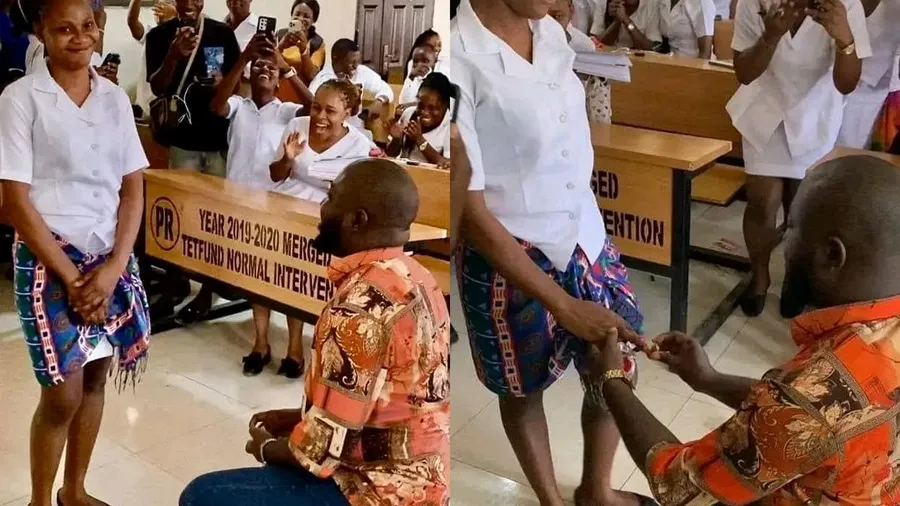How to Communicate Effectively with Lecturers: Effective communication with lecturers and university staff is an important skill every Nigerian university student should learn. It plays a big role in your academic success and helps you build positive relationships that can open doors for future opportunities. Whether you need help with a course, want to ask for a reference, or are seeking clarification on school policies, knowing how to communicate properly can make all the difference.
In this guide, we will explore the various aspects of effective communication with university lecturers and staff in Nigeria. Each section will focus on practical tips and examples to help you develop confidence and skill in communicating with academic and administrative personnel.
Table of Contents
What is Effective Communication
Effective communication is the process of sharing information, thoughts, or ideas in a clear, understandable, and respectful manner. It involves both sending and receiving messages accurately so that all parties involved fully understand the intended message. Communication becomes effective when the speaker conveys a message in a way that the listener can interpret correctly, and the listener responds appropriately.
This includes both verbal and non-verbal communication. Verbal communication refers to spoken or written words, while non-verbal communication includes gestures, facial expressions, tone of voice, posture, and eye contact. In a university setting, effective communication plays a crucial role in building healthy relationships between students and lecturers, exchanging ideas, asking questions, solving problems, and ensuring a productive academic environment.
For communication to be truly effective, it must also involve active listening. Active listening means paying full attention to the speaker, understanding their message, and responding thoughtfully. It shows respect and interest, and it helps to prevent misunderstandings. Effective communication is also characterized by clarity, conciseness, confidence, empathy, open-mindedness, and proper timing. In academic settings, these qualities enable students and lecturers to engage in meaningful dialogue and enhance the overall learning experience.

Importance of Effective Communication Between Students and Lecturers
Effective communication between students and lecturers is vital for several reasons. Firstly, it fosters a positive learning environment. When students and lecturers communicate well, it builds mutual respect and trust, creating a classroom atmosphere where students feel comfortable asking questions, expressing opinions, and seeking help.
This openness encourages participation, which in turn leads to a deeper understanding of the subject matter. Secondly, effective communication helps in academic success. Clear instructions, feedback, and explanations from lecturers guide students in their academic work. When students understand what is expected of them in assignments, projects, and exams, they are better equipped to perform well.
Likewise, when students communicate their needs, challenges, or questions clearly, lecturers can provide timely support or clarification. Thirdly, it strengthens student-teacher relationships. Positive interactions between students and lecturers contribute to a supportive academic experience. Students who feel heard and respected by their lecturers are more likely to be engaged in their studies and less likely to experience academic anxiety or alienation.
Fourthly, effective communication allows for better feedback exchange. Feedback is a two-way process. Lecturers need to know whether students are understanding the material or facing difficulties. Similarly, students need feedback to improve their learning. When communication is effective, feedback becomes constructive, specific, and actionable.
Fifthly, it prepares students for the professional world. Communication is a critical skill in any career. By learning to communicate effectively with lecturers, students develop essential interpersonal skills such as assertiveness, professionalism, empathy, and conflict resolution. These skills are valuable in future workplaces. Lastly, it helps in resolving misunderstandings and conflicts.
Differences in opinions, grading concerns, or disciplinary issues may arise between students and lecturers. Effective communication can help to address such issues in a calm, respectful, and solution-oriented manner. It ensures that problems are handled maturely and fairly, rather than escalating due to miscommunication or assumptions.

How to Communicate Effectively with Lecturers
Communicating effectively with lecturers as a Nigerian university student requires a combination of respect, confidence, clarity, and cultural awareness. It is important to understand the academic environment in Nigeria, where lecturers are often seen as authority figures and are addressed with a high level of respect. Below are practical tips and strategies that Nigerian students can use to communicate effectively with their lecturers.
- Use Appropriate Titles and Formal Language: Always address your lecturers using their correct titles, such as “Professor,” “Doctor,” “Sir,” or “Ma.” This shows respect and recognition of their academic status. Avoid calling lecturers by their first names unless they explicitly ask you to do so. Use formal greetings like “Good morning, Sir” or “Good afternoon, Ma” when initiating a conversation or email.
- Be Polite and Respectful: Politeness is crucial when communicating with lecturers. Whether you are speaking in person or writing an email, ensure your tone is courteous. Avoid using slang, harsh language, or demanding tones. Always say “please” when making a request and “thank you” when you receive a response. Being respectful does not mean being afraid to speak, but rather choosing your words thoughtfully.
- Prepare Before You Speak or Write: Before approaching a lecturer with a question or request, prepare what you want to say. Be clear about your purpose. If you are writing an email, write a short, polite, and direct message. Include your full name, department, matric number, and the specific issue or request. For example, if you are requesting an extension on an assignment, explain the reason clearly and respectfully.
- Be Clear and Concise: Lecturers are often busy and may not have time to read long messages or listen to lengthy explanations. Get straight to the point while including all necessary details. For instance, instead of saying, “I have some issues I want to talk about regarding what you said last time in class,” say, “Sir, I would like to clarify the concept of equilibrium in our last chemistry class. I did not fully understand your explanation.”
- Ask Questions Constructively: Asking questions is a key part of learning, and it shows that you are engaged in your studies. However, frame your questions politely and avoid interrupting the lecturer during lectures unless they ask for questions. If you are unsure of something, say, “Excuse me, Sir, may I ask a question about the last topic?” or “Please, Ma, could you kindly explain the part about…?” This shows that you respect their teaching while seeking clarity.
- Use the Right Medium of Communication: Know when to use face-to-face communication and when to use digital platforms like email or the school’s online portal. If the matter is urgent or personal, it may be best to see the lecturer in person during office hours. For less urgent or more formal requests, emails are appropriate. Avoid sending casual messages on social media unless the lecturer has permitted to contact them there.
- Observe Office Hours and Schedules: Lecturers often have specific times when they are available to meet students. Do not barge into their offices unannounced. Respect their time by visiting during official consultation hours or scheduling an appointment. If you need to reschedule, inform them ahead of time.
- Use Good Email Etiquette: Emails should be professional. Start with a proper greeting (e.g., “Dear Dr. Akinola”), state your reason for writing in the first paragraph, and include all relevant details clearly and concisely. End with a closing statement like “Sincerely” or “Best regards,” followed by your name and student information. Avoid using abbreviations, emojis, or informal phrases.
- Listen Actively: Communication is not just about speaking; it also involves listening. When a lecturer is giving you feedback, instructions, or explanations, pay full attention. Avoid distractions like checking your phone or chatting with friends. Nod in acknowledgment and ask follow-up questions if necessary.
- Be Honest and Take Responsibility: If you have missed classes, failed to submit an assignment, or made a mistake, admit it honestly. Do not try to shift blame or make excuses. Lecturers appreciate students who take responsibility for their actions. For example, instead of saying, “I didn’t do the assignment because you didn’t explain it well,” say, “I was confused about the assignment instructions and should have asked for clarification earlier. I apologize for the delay.”
- Show Interest and Appreciation: Expressing appreciation for your lecturer’s efforts can go a long way in building a good relationship. Thank them after lectures or when they assist you with a problem. Let them know when their teaching has helped you understand a topic better. This kind of positive feedback motivates lecturers and encourages further engagement.
- Maintain Professional Boundaries: Avoid becoming too informal or overly familiar with lecturers. While it is okay to be friendly and open, always remember that the relationship is professional. Do not make personal demands, jokes, or comments that may be inappropriate or misinterpreted.
- Stay Calm During Conflicts or Disagreements: If you disagree with a grade or feel unfairly treated, approach the lecturer calmly and respectfully. Present your concerns based on facts, not emotions. Ask for clarification instead of making accusations. For example, say, “Sir, I would like to understand why I received this grade. Could we go through the assignment together?” This shows maturity and a willingness to learn.
- Practice Good Non-verbal Communication: Your body language also communicates a lot. Maintain eye contact, stand or sit up straight, and use gestures that show you are engaged. Avoid crossing your arms, looking bored, or fidgeting, as these can send the wrong message.
- Follow Up When Necessary: If a lecturer promises to send materials or respond to your query but delays, it is okay to send a polite reminder. For example, “Dear Professor Okon, I hope this message finds you well. I am following up on the lecture notes you mentioned you would share. Thank you for your time.” Avoid sending multiple messages in a short period or expressing frustration.

Conclusion
Effective communication is a foundational skill that supports academic success, builds strong student-lecturer relationships, and prepares students for life beyond the university. For Nigerian university students, learning how to communicate clearly, respectfully, and confidently with lecturers is not just beneficial—it is essential.
By understanding the principles of effective communication and applying practical strategies such as using appropriate titles, preparing their message, listening actively, and maintaining professionalism, students can enhance their academic experience and achieve their goals more effectively.
In a society where respect for authority is deeply valued, Nigerian students must navigate their communication with lecturers carefully and purposefully. This does not mean being timid or silent. Rather, it means learning how to express oneself in a manner that is polite, clear, and constructive. With the right approach, communication becomes a powerful tool for learning, growth, and success. See more posts on our How-To Guide category.


